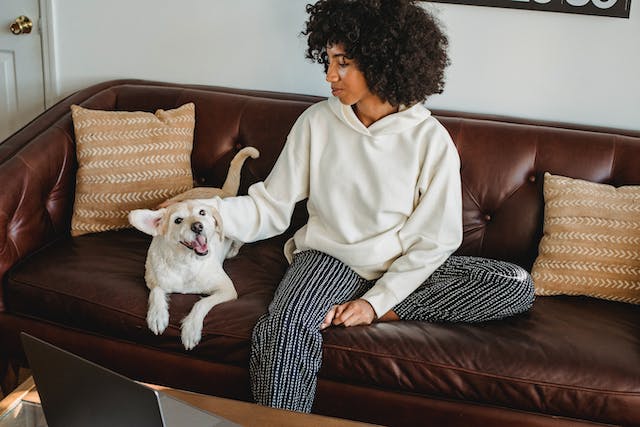Emotional support animals have been around for a long time, and they can help you treat mental health conditions like depression, anxiety, and even post-traumatic stress disorder (PTSD). In fact, research into how ESAs and service dogs can help took off in the 1960s, and there’s strong evidence to suggest that they can make a positive impact on your life. What’s more, any animal can be an ESA, even your favorite canine companion. However, you might be wondering, can a puppy be an emotional support animal?
The short answer is yes, but there’s more to it than that. Read on to learn everything you need about emotional support puppies.

What Is an Emotional Support Animal (ESA)?
An emotional support animal (ESA) is an animal that provides you with comfort and relief from symptoms like depression, anxiety, and PTSD. Emotional support animals can be any animal (as long as it’s friendly), but you need to have an ESA letter written by a licensed mental health professional to be legitimate. These letters allow your ESA to live with you in apartments that are otherwise not pet-friendly.
Additionally, ESA letters may help you in public spaces if you call ahead.
Can a Puppy Be an Emotional Support Animal?
There is no age limit on emotional support animals, so yes, a puppy can be an emotional support animal. If you’re planning on adopting an ESA you can register your puppy right away, and you don’t have to worry about waiting for a certain age, size, or weight. All you need to register a puppy as an ESA is some information about you and your breed, as well as a signed letter from a licensed mental health professional stating that an ESA will improve your mental health condition.
Can Landlords Deny an ESA Puppy for Being Too Young?
No, landlords can’t deny an ESA puppy for being too young. The only time that a landlord can deny an ESA is if you don’t have the proper documentation or if the animal is unruly. According to the Americans with Disabilities Act (ADA), landlords have to have good reasons not to approve an ESA in their building or home, so dogs that bite other tenants or make excessive noise can be denied.
When it comes to puppies, this is a valid concern because sometimes they can pee on furniture, damage rugs, bark, and be overly friendly or aggressive. It’s always important to get the right amount of training to ensure that your ESA puppy can remain on the premises.
What’s the Best ESA Puppy Breed?
There is no single best ESA dog breed. Ultimately, it comes down to dog breeds that you like and can bond with. That said, we do have some recommendations to help you get started.
First and foremost, consider the size of the dog. While having a giant dog that also serves as a pillow, it might not be practical if you live in a small apartment. Instead, focus on a smaller dog that doesn’t make a lot of noise. If you want to take your dog in public, it’s also best to go with a smaller breed and many smaller breeds are emotionally intelligent.
Still, larger breeds can also be good emotional support animals if you need deep pressure therapy (therapy that relieves symptoms through touch or massage). Therefore, it depends on your personal needs.
Register Your ESA Puppy Today!
Emotional support animals can change your life for the better, and you don’t even have to worry about spending a fortune on training like you would for a service dog. All you need is a canine companion or any other friendly animal, and you can get started with the registration process.
If you want to register your puppy the right way, make sure you consult with a licensed mental health professional and get an ESA letter; it’s the only way to prove that you have an ESA and helps you get housing in otherwise not pet-friendly holes.
We always recommend working with US Service Animals when registering an ESA dog because they can connect you to a licensed mental health professional and get you a letter fast.
It might seem unnecessary to register a puppy as an ESA, but why waste any time? Registering your ESA as a puppy will help you bond and train with them, which will make the experience better for both of you.



